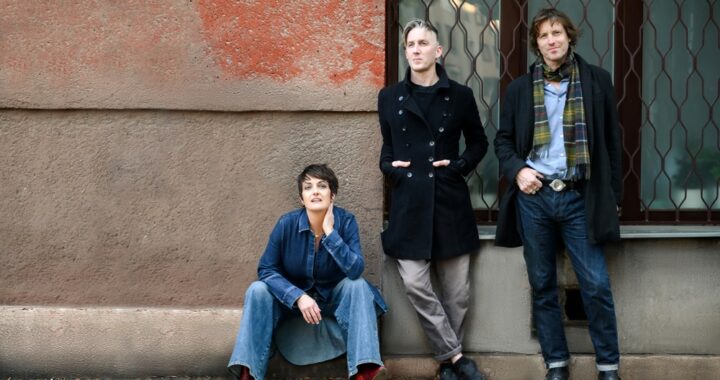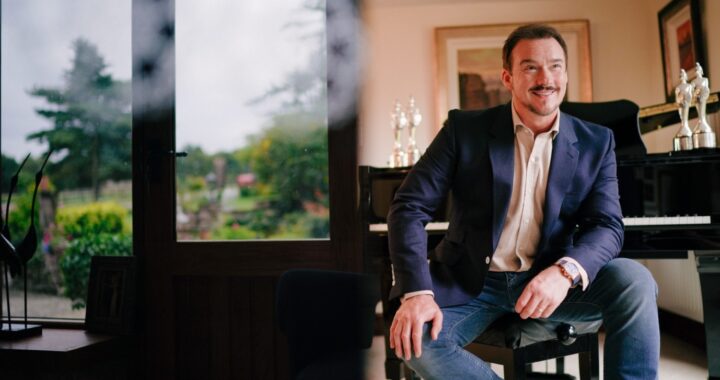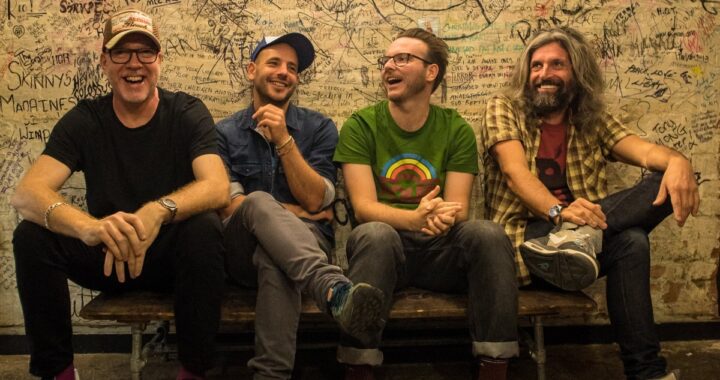Interview: Soulfly
8 min read
In a genre replete with showmanship and posturing, Max Cavalera still stands as an embodiment of metal. While other musicians may talk the talk, Cavalera growls metal from every angle. The Brazilian who broke the world with his first band, Sepultura, and later Soulfly, Killer Be Killed and Cavalera Conspiracy; a vast legacy stretching out behind him and Cavalera is showing no signs of stopping.
 Soulfly are back with their tenth studio album, Archangel. Immersing themselves once again in mysticism and ritual, Archangel is a brutal exploration of biblical retribution and salvation. In place of tribal drums and grooves, is a darker incarnation of Soulfly. Fast and furious, Archangel delivers battering percussion from Cavalera’s son Zyon, annihilative vocals and looming melody. Interspersed with haunting chorals and chanting, even fanfares, that conjure the mysticism of an ancient faith.
Soulfly are back with their tenth studio album, Archangel. Immersing themselves once again in mysticism and ritual, Archangel is a brutal exploration of biblical retribution and salvation. In place of tribal drums and grooves, is a darker incarnation of Soulfly. Fast and furious, Archangel delivers battering percussion from Cavalera’s son Zyon, annihilative vocals and looming melody. Interspersed with haunting chorals and chanting, even fanfares, that conjure the mysticism of an ancient faith.
There is nothing surface level about either Soulfly or Archangel; both the music and the inspiration delve so deeply into the lore of metal and spirituality that it would take more than this article to dissect it. But the result is a rich and brutal record, that leaves no doubt of Cavalera’s unwavering commitment to the cause.
Here’s our interview with Max Cavalera, shedding a little more light on Soulfly’s most recent album…
Susie Garrard: In the past you’ve resisted implications that Soulfly are a christian metal band, but there is definitely a biblical theme to your new album Archangel. What inspired that?
Max Cavalera: We just tried to do something different with this record, every album is different form each other you know? In the past we had records like Primitive and Omen, records like Dark Ages and Slave that were a little bit heavier. Savages was more groove, and Archangel is a bit more biblical but in terms of music it’s more extreme, coming from extreme metal influences.
SG: The album has been described as more brutal and aggressive. What did you want to create in terms of sound?
MC: It was a fun record to make because we had a lot of ideas and I really explored a lot with my vocals, doing chants and working on some really cool choruses. Even the effects we put between songs, me and [producer] Matt Hyde, we worked on some really apocalyptic sounds – like the horns on Bethlehem’s Blood. It was really cool you know, it was a really exciting record to make. I think that Matt Hyde was the perfect guy to make this record.
SG: You have said that you never wanted Soulfly to be the same line up, the same guys writing album after album. Which is evident in the near constant rotation of band members and also collaborations. Can you tell us about the line up your brought together for Archangel?
MC: It’s always changing a little bit, Soulfly always has one or two people coming or going but we have a guitar player Marc Rizzo – who looks like he’s going to stay for a long time. My son Zyon is on his second record with us, and we have a new bass player, Mike [Leon] from Havok, who is going to do the American tour. Hopefully that’s going to work out! I don’t know how long Zyon’s going to be able to stay with us because he’s got another band with his brother, Lody Kong. But Soulfly was made this way; it was made with a lot of different people and the structure was supposed to change from time to time.
SG: Soulfly as a band has a tribal feel; with a pool of musicians, and your own brother and sons. Was that tribal sense always a part of your vision for Soulfly?
MC: Yeah the tribal stuff was good, it was more at the beginning of Soulfly. It’s always part of my sound and my music. I like to just stay creative, to stay motivated and keep going further. And right now I’m more into more extreme metal; death metal and black metal. And I listen to a lot of that so the reflection of that is in the album – Archangel is a more extreme record. But eventually at some point, I’m thinking about doing a tribal record. A really full on tribal record; like tribal drums from Africa – but that’s more like future plans.
SG: There are some heavy, biblical references running throughout Archangel, mainly around the idea of retribution; the Archangel, Sodom & Gomorrah, Shamash and Ishtar. But other tracks like We Sold Our Souls To Metal have a bit of a different feel?
MC: I like the contrast of having songs that are biblical and songs that are non-biblical together. So that’s why we have a song like We Sold Our Souls To Metal, which is about heavy metal and about my passion for metal. You have biblical songs like Archangel, Sodomites which is about the destruction of Sodom, and Bethlehem’s Blood about the killing of infants in Bethlehem. And then you have Deceiver which is about shit-talking people, and Mother Of Dragons about my wife. So it’s cool, it’s contrast – I like extremes. I think if the whole record was biblical it would have been a little bit boring. It would have been too much for people to take on board, too much for people to understand. By having songs like Live Life Hard with Matt [Young] from King Parrot and stuff like We Sold Our Souls To Metal, it’s a break. It makes it a little bit more of a different kind of record.
[youtube id=”ZO6zqeBi9pY” width=”650″ height=”360″]
SG: I’ve read a few suggestions that Mother Of Dragons was inspired by Game Of Thrones. Is there any truth in that?
MC: It’s connected you know, people were calling my wife that but at the same time we were watching the show and we realised that there’s a Mother of Dragons in Game Of Thrones. I think it’s cool though, the lyrics on the record are more about [Cavalera’s wife] – the kids wrote it for their mother – and it’s not much about Game Of Thrones. But I’m a big fan of the show; I like Game Of Thrones, I think it’s good and violent and I like to watch it!
SG: There are very few times when you aren’t touring – what are your plans for touring ‘Archangel’ live?
MC: We have an American tour up to November and a European tour in January. And after that we’re open so we’re hoping that we can come to Australia sometime next year. I’d love to do a big australian tour, that would be great.
SG: You have also said that despite both yours and Igor’s presence on stage, you won’t be playing Sepultura songs at live shows anymore. Is that because it’s simply time to move on, or a reflection of your confidence in the direction Soulfly is taking?
MC: It’s more about Soulfly having a lot of songs and albums. We have ten records now, we almost don’t need any Sepultura. I’ll probably only play one or two songs just to really please the olds fans who want to hear that stuff with my voice. Because some of them still come to the show and they wear their Sepultura t-shirts, so it’s fair to them. Sometimes they want to hear Arise or Roots [Bloody Roots] or Refuse/Resist, but the majority of the set will be comprised of Soulfly stuff from now on. Especially with the tenth record, there is a lot of material to choose from.
SG: You have an impressive metal legacy, and also incredible commercial success, do you sometimes find it difficult to reconcile commerciality with integrity?
MC: No, I just love what I do. I love the way my life is mixed with metal and I feel like I’m still a teenager in my mind. I still love music and metal and I still listen to new bands, I get excited about bands. I still love going on tour, getting excited about playing live, making records and staying busy. So I think more about that than other things. It’s really about continuing doing what I do – I love what I’m doing and I want to do it for a long time.
SG: In the past you’ve picked up great new acts, like you were a fan of Deftones in their early days. Are there any new metal bands that you’re excited about at the moment?
MC: There’s a lot of new stuff that’s good; King Parrot’s great, Nails. I listen to a lot of death metal in my spare time so a lot of Hour Of Penance, Bloodtruth and Enthroned, Behemoth – I like these bands a lot. I really like the death metal, black metal scene so it’s exciting for me to listen to that stuff. And to dig around and discover new bands as well.
SG: In terms of your legacy, what would you hope you’ve achieved for music and metal – and what would you still like to achieve?
MC: I think it’s a great legacy with a lot of albums and a lot of music. Being the first heavy metal person from Brazil, that’s a really big thing! We broke out of Brazil and made it internationally. Now I have a book out and ten records with Soulfly, a lot of records with Sepultura. It’s a long, very influential career and I’m really, really proud of it.
SG: More recent Soulfly albums have been more concise at around ten tracks, is there any reason for that?
MC: The records are a reflection of what I listen to, very much, and that’s what I like. You can go all the way to back to the early Sepultura where I was listening to a lot of Celtic Frost and Hell Hammer. And then later Sepultura it was a little bit more hardcore; Biohazard, Sick Of It All. The beginning of Soulfly it was newer bands like Deftones and Slipknot. Then later Soulfly more grindcore, death metal, and nowadays I’m listening to more extreme metal – that’s what I love about it. I like the energy of this music a lot.
SG: Thank you so much for you time, it’s been an absolute pleasure!
MC: Thanks, nice talking to you.





